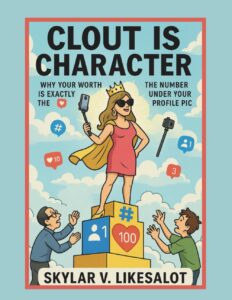There’s a peculiar phenomenon sweeping through YouTube’s debate culture, and if you’ve spent any time watching podcasters argue with one another—whether on multi-panel discussions or heated one-on-ones—you’ve witnessed it. I call it “The Gotcha Moment,” and it’s slowly poisoning what could otherwise be fascinating intellectual exchanges.

The Setup
Picture this: Two intelligent podcasters, each with substantial followings, sit down to discuss a genuinely important topic. Maybe it’s about the future of artificial intelligence and its impact on employment. Perhaps it’s a debate about education reform or healthcare policy. The subject matter is meaty, consequential, and worthy of nuanced exploration. Both participants have clearly done their homework. They arrive armed with statistics, personal anecdotes, expert citations, and frameworks that could genuinely illuminate different aspects of a complex issue.
The opening minutes are promising. Thoughtful points are made. You lean forward in your chair, genuinely curious about where this conversation might lead.
And then it happens.
The Shift
Someone says something—anything—that could be interpreted as slightly incorrect, somewhat hyperbolic, or even just imprecisely worded. The energy in the room changes instantly. You can almost see it in their eyes: the predatory gleam of someone who’s just spotted blood in the water.
“Wait, wait, wait,” one interrupts, holding up a hand. “Did you just say that most people believe X? Because according to this study I have pulled up right here…”
The conversation has just shifted from collaborative exploration to gladiatorial combat.
What follows is rarely about the substance anymore. It’s about the spectacle. The other podcaster, now on the defensive, doesn’t concede the minor point and move forward. Why would they? Their reputation is on the line. Their comment section is watching. Their clips channel needs content. So they double down, or pivot, or attack a different angle—not because it serves the discussion, but because retreat is interpreted as weakness in the YouTube ecosystem.
The Context Graveyard
Here’s what makes The Gotcha Moment so insidious: both parties often start with legitimately good ideas. One podcaster might have a brilliant insight about how economic incentives shape behavior in unexpected ways. The other might have a compelling framework for understanding how historical patterns repeat themselves in modern contexts. These aren’t trivial observations—they’re the kind of perspectives that could genuinely expand someone’s understanding of the world.
But these ideas become casualties of war.
Instead of building on each other’s insights, instead of saying “that’s an interesting point, and if we combine it with this other consideration…” they’re searching for weak points. They’re looking for logical inconsistencies, semantic slip-ups, or factual errors they can exploit. The original topic—the supposedly important issue they sat down to discuss—becomes mere terrain for their battle, rather than the point of the conversation itself.
The context gets swept under the rug because context is complicated. Context requires good faith. Context means acknowledging that your opponent might have a point, even if it’s inconvenient for your argument. And in the attention economy of YouTube debates, good faith doesn’t generate clips.
The YouTube Superiority Olympics
What we’re witnessing isn’t really intellectual discourse—it’s performance art designed for algorithmic amplification.
Consider the incentive structure. A nuanced, good-faith conversation where both parties learn something and modify their views? That might get some appreciation from mature viewers, but it doesn’t generate the engagement metrics that YouTube’s algorithm craves. It doesn’t produce the short-form clips that go viral on Twitter and Instagram. It doesn’t give the comment section clear team allegiances to form around.
But a “PODCASTER DESTROYS OPPONENT WITH FACTS” moment? That’s gold. That’s the clip that gets 2 million views. That’s what gets thumbnailed with the shocked face and the red arrows pointing to the “loser” mid-blink.
Both podcasters know this. They’ve seen the analytics. They know that their most-watched moments aren’t when they’re being thoughtful—it’s when they’re being combative. They’ve seen their subscriber counts spike after confrontational episodes and plateau after collaborative ones. The platform itself has trained them, like lab rats pressing levers, to prioritize conflict over comprehension.
The Ego Arms Race
As this pattern repeats, something even more corrosive happens: the participants start to believe their own hype.
Initially, maybe they were just playing the game, understanding that a certain amount of performance was necessary to build an audience. But after you’ve had thousands of comments calling you a “debate king” or celebrating how you “destroyed” someone, after you’ve built a brand around never backing down, after you’ve internalized the idea that admitting uncertainty or changing your mind is tantamount to professional suicide—well, the performance becomes the personality.
The ego investment becomes so substantial that the very idea of not winning becomes intolerable. It’s no longer about the healthcare policy or AI ethics or whatever topic ostensibly brought them together. It’s about maintaining the image of superiority they’ve constructed.
Each subsequent debate raises the stakes. If you’ve spent the last six months building a reputation as someone who never loses arguments, you can’t suddenly start having honest conversations where you admit limitations in your knowledge. Your audience won’t allow it. Your ego won’t allow it. The YouTube economy won’t allow it.
What We're Losing
The tragedy of The Gotcha Moment isn’t just that individual conversations become unproductive. It’s that we’re collectively losing the ability to engage in the kind of discourse that actually changes minds and advances understanding.
Real intellectual progress happens in the margins, in the messy middle ground where neither party has a complete picture. It happens when someone says “I hadn’t considered that” or “that’s a fair point” or “I’m not sure.” It happens when the goal is collective sense-making rather than individual victory.
There are genuinely difficult questions facing society—questions about technology, ethics, governance, culture, and human flourishing. These questions don’t have simple answers. They require synthesizing insights from multiple perspectives, holding contradictory ideas simultaneously, and being willing to update your models as new information emerges.
But The Gotcha Moment makes that kind of thinking impossible. When every conversation is a zero-sum game where one person must win and the other must lose, we lose the collaborative possibility space where the best ideas emerge from combining partial truths.
The Audience's Role
We can’t place all the blame on the podcasters themselves. They’re responding rationally to the incentives we, as viewers, create.
Every time we click on the “DESTROYED in debate” video instead of the thoughtful discussion, we’re voting with our attention. Every time we share the clip of someone stumbling over their words rather than the segment where they made a nuanced point, we’re reinforcing the system. Every time we pick “teams” in the comments section rather than engaging with the ideas themselves, we’re part of the problem.
The algorithm isn’t some external force—it’s a reflection of aggregate human behavior. YouTube shows us what we click on. If we consistently choose spectacle over substance, we’ll get more spectacle.
The Way Forward
So what’s the alternative? How do we escape The Gotcha Moment?
It starts with recognizing it. When you notice a debate shifting from exploration to one-upmanship, call it out—if only to yourself. Ask: “Is this argument advancing my understanding, or is it just entertainment?” When you see a podcaster making a genuinely good point, appreciate it even if you disagree with their other positions. When someone admits uncertainty or changes their mind, recognize that as intellectual strength, not weakness.
For content creators, the challenge is harder but more important. It means occasionally choosing substance over virality. It means building an audience that values growth over winning. It means cultivating an ego robust enough to admit when you don’t know something or when your opponent has a point.
Some podcasters are already doing this. They exist in smaller corners of YouTube, building loyal audiences who appreciate depth over demolition. They’re proof that the alternative is possible, even if it’s not currently the dominant mode.
The Real Victory
Here’s the irony: the podcasters most obsessed with winning the debate are losing something more important—the opportunity to actually be right about more things.
The person who enters every conversation determined to defend their existing positions will leave with the same positions they came in with. The person who enters genuinely curious, willing to have their mind changed, will gradually develop more accurate models of reality. Over time, this second person will actually become more knowledgeable, more nuanced, and—paradoxically—more persuasive to thinking audiences.
But that requires playing a longer game than YouTube’s quarterly analytics cycles typically reward.
Conclusion
The Gotcha Moment isn’t going away anytime soon. The economic incentives are too strong, the ego rewards too intoxicating, and the audience appetite too reliable. But recognizing it for what it is—a performance that masquerades as discourse—is the first step toward demanding something better.
The next time you watch two podcasters debate, pay attention to that moment when the conversation shifts. Notice when they stop building ideas together and start scoring points. Notice when context becomes collateral damage in the pursuit of victory.
And ask yourself: Is this what you actually wanted to watch? Or did you come here to learn something?
The answer to that question might just change what appears in your recommendations next time.
Hey there! We hope you love our fitness programs and the products we recommend. Just so you know, Symku Blog is reader-supported. When you buy through links on our site, we may earn an affiliate commission at no extra cost to you. It helps us keep the lights on. Thanks.
Disclaimer: The information provided in this discussion is for general informational and educational purposes only. It is not intended as medical or professional advice. Only a qualified health professional can determine what practices are suitable for your individual needs and abilities.


